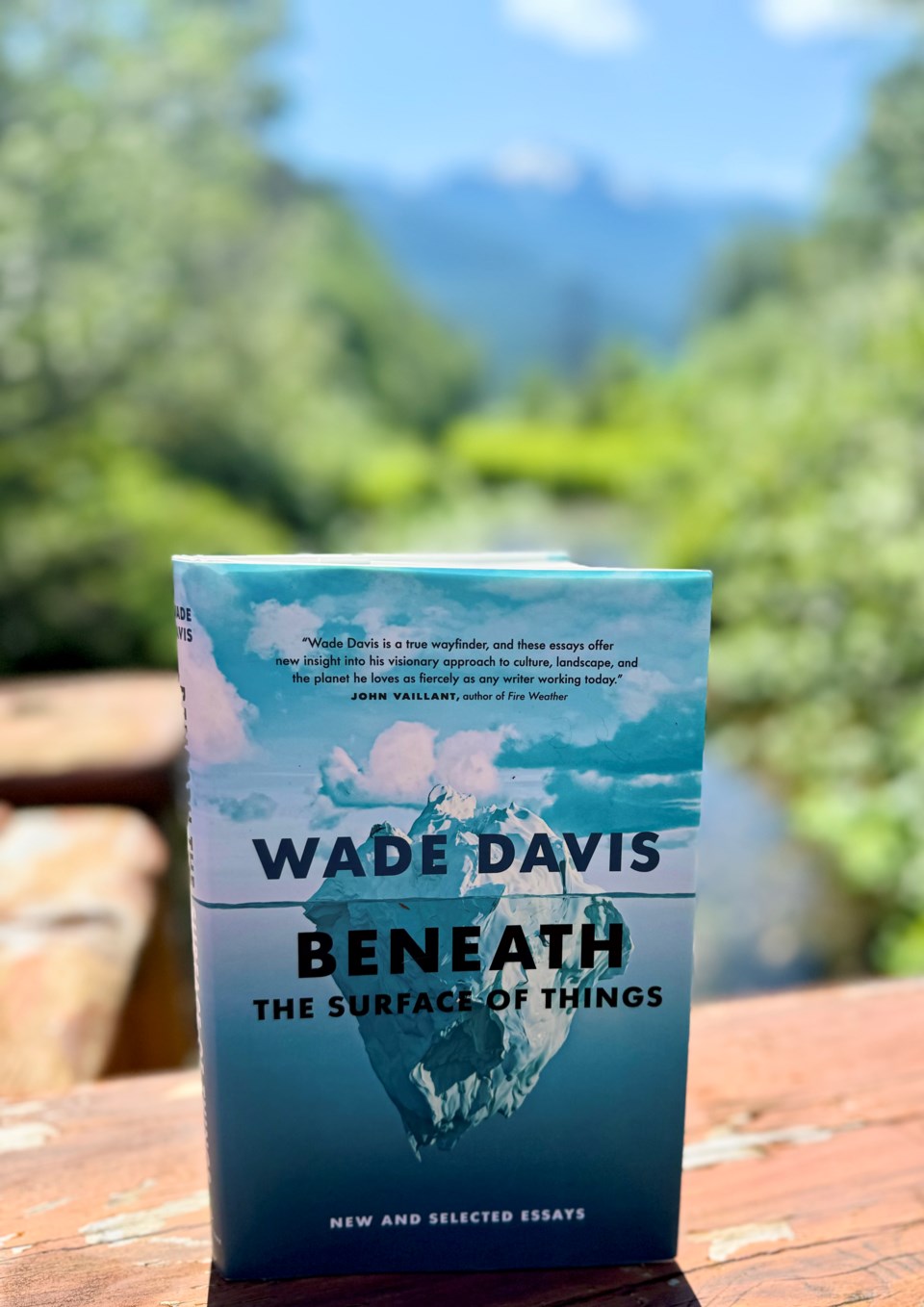Like many thinkers freed to indulge things they might not otherwise have had time for, famed anthropologist, raconteur and author Wade Davis had a pandemic project. The result was this summer’s release, Beneath the Surface of Things, a collection of essays written, updated or repurposed, he says, when “everybody’s plans went through the car wash.”
Beneath isn’t the first Davis book to collate disparate ideas, but it’s the most eclectic and—for those unfamiliar with his ability to roam as widely in intellectual realms as Earthly ones—perhaps unexpected. “Being unable to travel, books displaced expeditions,” he says. “I found myself travelling through worlds of words, finding books that totally inspired me and caused me to think and write on new subjects.”
Whether his descent into the secret societies of Haitian Voodoo in The Serpent and the Rainbow, the varied cultural explorations of subsequent volumes, or his 2009 Massey Lecture synthesis, The Wayfinders, Davis’ writing has always served to open Western eyes to lesser-known-but-equally-valid aspects of the human experience. With Beneath, however, Davis has also taken a magnifying glass to the tire tracks of modernity: the heroics of the First World War that birthed nations and provided a logical segue to the British conquest of Everest; the history of a promised land in which Israelis and Palestinians struggle to coexist; demonization of the coca leaf, sacred plant of the Inca; and the upheavals we collectively witnessed while doomscrolling our way through the pandemic. “I’ve never thought there was something I didn’t have the right to write about,” he says.
In the opening essay, “This is America,” Davis unearths that country’s tectonic societal rifts and often delusional sense of its own history, yet wraps on a note of positivity, hope and optimism—trademark of the author’s balanced approach to humanity. Davis marshals similarly uncomfortable truths in “The Unravelling of America,” which appeared in Rolling Stone in August 2020, logging 365 million social-media impressions. Turning on the country’s appalling COVID response and civic unrest following the murder of George Floyd, it heralds the end of the American century. “I think people were desperate for something that explained the context of what was going on,” he says of a piece that deftly avoids diatribe.
While an anthropological perspective invites such analysis, Davis is careful to make clear why. In “Why Anthropology Matters” he examines not only how early practitioners gave us the world we now live in, but how the discipline is losing its way. “I grew up in the era of activism anthropology,” he says. “And now [it] just studies itself. The postmodern kind of neurosis.”
Likewise, “Beyond Climate Fear and Trepidation” may be a difficult read for activists unrealistically married—as Davis suggests with real-world data—to radical actions that might destabilize not only economic prospects for aspiring societies, but the psychological well-being of our children. Bullish on humanity’s problem-solving and technological acumen, he instead advocates for “a middle way, one that calls for sensible and open dialogue, with the goal of not just reducing carbon but improving the well-being of all.”
Anyone who has heard Davis speak is rapt by his passion, depth of knowledge and an encyclopedic recall that crosses oceans, climbs mountains, and penetrates jungles without losing the critical threads of culture, experience and ideas. One notion that crops up repeatedly provides a coda to Beneath—the ubiquity of the sacred. What does it mean to humankind? How has it shaped our species?
While religion is an “attempt to wrestle with eternity and come out on top,” the sacred, he counters, is about life, a biological relationship: “The full measure of cultures isn’t just what they do, but the quality of their aspirations and the metaphors that drive them forward.”
A lifetime of wisdom is shared in these pages, and, in sometimes provoking, call to mind an aphorism: To avoid criticism, say nothing, do nothing, be nothing. Davis has never shied from courting censure, speaking out in the best tradition of activist anthropology, as fearless a thinker as he is cultural adventurer. A man with a gift, perhaps, for saying the unsayable. When one thus informed looks beneath the surface of things, the seemingly routine can become revelation, the inexplicable comprehension.
Leslie Anthony is an award-winning Whistler-based writer, editor, biologist, and occasional filmmaker. Author of a number of celebrated works of non-fiction and a former editor at several renowned outdoor publications, he channels years spent in laboratories, deserts, jungles, swamps and mountains into his writings on adventure travel, the environment and science topics ranging from fossil-smuggling to climate change to monsters both real and imagined in publications like Canadian Geographic, British Columbia, Mountain Life and Pique.
Catch him and Davis in conversation at the Fairmont on Oct. 19. Find more info and tickets at whistlerwritersfest.com.




